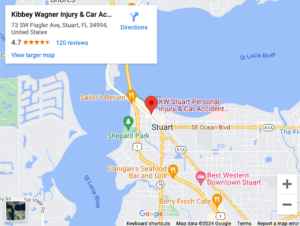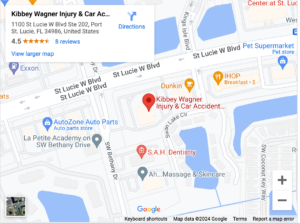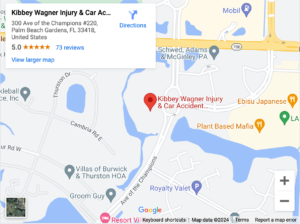
Non-economic damages represent the pain and suffering a person experiences after an injury.
Injury victims can recover compensation for these damages by filing an insurance claim or personal injury lawsuit.
What Types of Compensation Can You Receive for a Personal Injury Claim?

You can recover compensation for your economic injuries when you are injured because of another party’s negligence, intentional acts, or other wrongdoing. Economic loss in personal injury cases includes medical bills, lost wages, and other out-of-pocket medical expenses and costs. In addition, if you sustain permanent impairments, you could recover compensation for future economic damages, such as diminished earning potential and long-term nursing care.
In addition to reimbursement for your financial losses, you can recover compensation for non-economic damages. These damages are abstract and subjective because each person experiences pain and suffering differently. Also, the type and severity of injuries and other factors impact the level of suffering and anguish a person experiences because of an accident or injury.
Examples of Non-Economic Damages in Personal Injury Cases
If another party injured you, you could seek compensation for your pain and suffering damages, including:
Pain and Suffering
Severe injuries can cause chronic, debilitating pain. You are entitled to compensation for the pain you experienced because of an injury. Injured parties may also recover compensation for significant scarring and disfigurement, as well as permanent impairments and disabilities.
Emotional and Mental Anguish
Emotional distress is the emotional and mental anguish caused by an accident or injury trauma. Examples of emotional distress a person may recover compensation for include:
- Post-traumatic stress disorder (PTSD)
- Anxiety disorders and panic attacks
- Depression
- Feelings of shame, guilt, or embarrassment
- Extreme fatigue
- Insomnia or sleeping too much
- Eating disorders
- Body aches and headaches
- Withdrawal and isolation
- Loss of sexual desire
- Sudden weight gain or weight loss
- Reliance on drugs and/or alcohol to deal with symptoms of emotional distress
The symptoms of emotional distress can be debilitating. They can impact a person’s ability to participate in the ordinary functions of daily life.
Loss of Consortium
When a person is injured, the injury can impact their family members. A loss of consortium claim allows family members to seek compensation for their non-economic damages. Loss of consortium can include loss of society, love, affection, companionship, guidance, and support.
Diminished Quality of Life
A person may experience a decrease in their quality of life because of a personal injury. Injuries that could result in a diminished quality of life claim include:
- Paralysis
- Losing your hearing or eyesight
- Amputations and loss of limbs
- Traumatic brain injuries
- Severe disfigurement
- Injuries to internal organs
- Loss of bodily functions
- Injuries that result in developmental, emotional, or physical delays or impairments
A decrease in quality of life often results in loss of enjoyment of life. The person may be unable to engage in specific activities. In some cases, a person’s condition could negatively impact their ability to make and maintain relationships with others.
Are Punitive Damages Included in Non-Economic Damages?
Unlike non-economic damages, punitive damages are not compensatory. Non-economic damages compensate the injured party for emotional, physical, and mental harm and losses. However, punitive damages do not compensate you for damages.
Instead, a jury awards punitive damages to “punish” the at-fault party. Florida law requires that you prove the defendant is guilty of gross negligence or intentional misconduct in order to receive punitive damages. Keep in mind that punitive damages are rarely awarded.
How Much Are My Non-Economic Damages Worth?
Calculating how much your personal injury case is worth requires you to put a price on your pain and suffering. The insurance company and defense lawyer minimize your suffering to lower the value of your claim. We fight to maximize compensation by developing a compelling narrative explaining the extent of your suffering and pain.
Florida does not have a standard formula for calculating non-economic damages. However, a common method used by courts, insurance companies, and personal injury attorneys is the multiplier method.
A number between 1.5 and five is chosen based on the facts of the case. For example, catastrophic injuries would increase the number. Likewise, a permanent impairment would justify a higher number.
The number is multiplied by the total of your economic loss. The result is the value of your non-economic damages.
Unfortunately, it can be challenging to determine the value of suffering and pain. Each person is unique. Even when two people sustain the same injury, their levels of suffering can be vastly different.
Our legal team works with you, your physicians, and medical experts to document the extent of your injuries and damages. Then, we fight to get you the maximum compensation available for your injury claim.
Schedule a Free Consultation With Our Stuart Personal Injury Lawyers
You may be entitled to compensation for damages caused by an accident or personal injury, including the pain and suffering you experienced. Contact our law firm by dialing (772) 444-7000 to schedule a free consultation with one of our experienced Stuart injury lawyers. Our legal team fights to get you the money you deserve.




